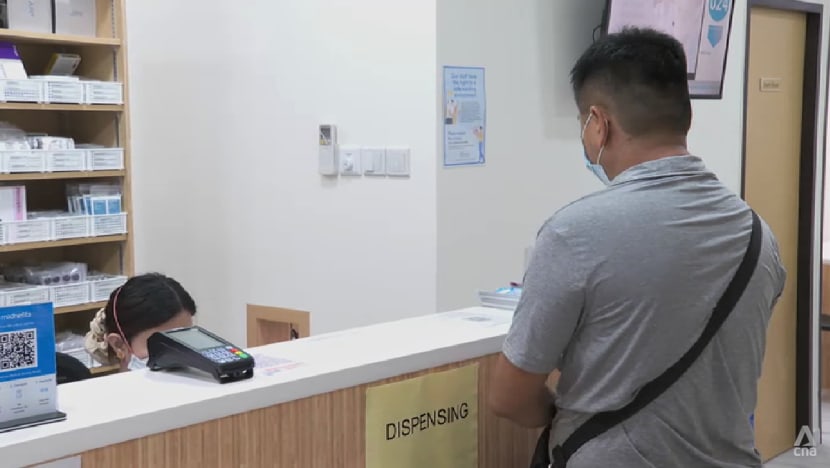War against diabetes: Doctors seeing rise in patients below 40 due to lifestyle habits, early screening
More than 400,000 people in Singapore live with diabetes, with the number projected to rise to 1 million by 2050.


This audio is generated by an AI tool.
SINGAPORE: Diabetes is affecting more young people, and not just older adults.
Doctors in Singapore told CNA that they are seeing more patients, some as young as 30 years old, having the disease.
Modern lifestyle habits and greater awareness of early screening are some of the reasons that have contributed to this increase in cases.
LIFESTYLE HABITS, EARLY SCREENING
More than 400,000 people in Singapore live with diabetes, with the number projected to rise to 1 million by 2050.
Diabetes is a disease in which the body does not respond to a hormone called insulin, or is unable to produce it to control blood sugar levels.
There are two main types of diabetes. For Type 1 diabetics, their pancreas naturally does not produce enough insulin. On the other hand, Type 2 patients are unable to utilise the insulin effectively.
At Phoenix Medical Group, a significant minority of its Type 2 diabetes patients are those in their 30s and 40s. This has grown by some 10 per cent in recent years.
“With an increasingly stressful lifestyle, a lot of patients have a very sedentary diet. They work long hours and do not have enough time for exercise,” said Dr Chua Hshan Cher, medical director at Phoenix Medical Group.
“The other would be the rise of fast food as well as convenience foods, so these contain a lot of processed sugars. And sometimes when they are pressed for time, they just reach out for the easiest meals available.”

However, clinics also attribute the rise in cases among younger patients to the earlier detection of the disease, due to more people going for health screening.
“Some of our patients are a little bit more wise to the fact that they should run a health screening and hence, perhaps, these patients are actually picking up their conditions earlier, as opposed to in the past,” said Dr Chua.
“They might not even know that they actually have diabetes because they are generally asymptomatic.”
Healthway Medical Group is facing a similar situation, with one in four of its current diabetes patients being below 40 years old.
Usually, such patients have comorbidities such as high blood pressure or high cholesterol, said Dr Teo Cheng Rong, family physician at Healthway Medical (Limbang).
“And as we screen their sugars, we realise that the sugars are on the borderline or high side,” he said.
Dr Teo said this group of patients may seem well, but may have a family history of diabetes or some poor habits.
“In the past, perhaps we only pick up diabetes when they present to us with symptoms. That is something that we are trying to move away from, but to pick up diabetes at a much earlier stage,” he noted.
“And the good thing here is that we have more time for the doctors and patients to work together to actually possibly slow down, or sometimes even reverse these problems before diabetes contributes to some irreversible damage to the body.”
TARGETED TREATMENT FOR YOUNGER PATIENTS
With a younger and more educated pool of patients, it is easier to turn the tide, said healthcare practitioners.
“Fortunately, for the younger age group, we have more time to actually work things out. And because we are picking up much earlier, their control is not too bad,” said Dr Teo.
“What we usually do is start with lifestyle changes. So we will tell them we have a structured programme in terms of managing their weight, managing their sleep, managing their diet plans.
“So with a lot of these patients I see, we don’t need to start medication, and they can do quite well with these lifestyle modifications. The only question is whether they can persevere with these lifestyle changes in the long run, and they will definitely still need some form of regular follow-ups.”
OneCare Medical, where one in five of its diabetes patients are below the age of 40, said treatment of younger patients can be more targeted, compared to seniors.
“If they are young, they actually have quite a fair bit of life journey that they are still going to have to undergo. We do want to make sure that they have tighter control of their diabetes,” said Dr Jimmy Chew, chief executive officer of OneCare Medical.
“So in a way, we will treat them a bit more aggressively, and of course this is in all aspects. So lifestyle changes means exercising, losing weight, reducing your carbohydrate intakes. And we adjust the medications according to how good their diabetic control is.”
Doctors stressed that prevention is still better than cure.
With the help of national initiatives such as nutritional grade labelling, they encouraged people of all ages to watch their sugar and food intake, as well as to stay active.




















